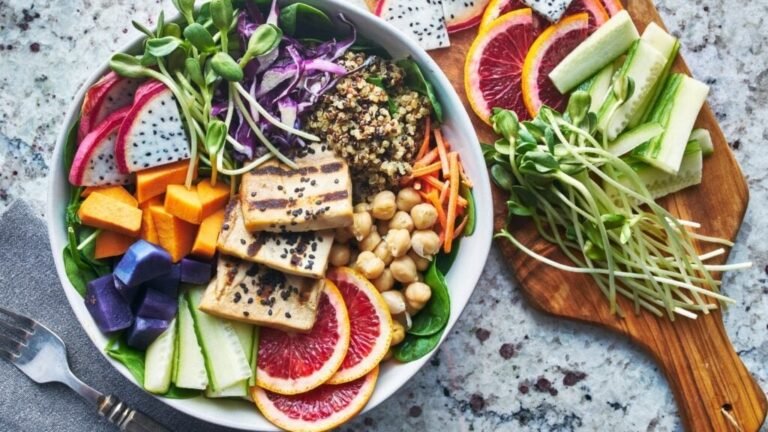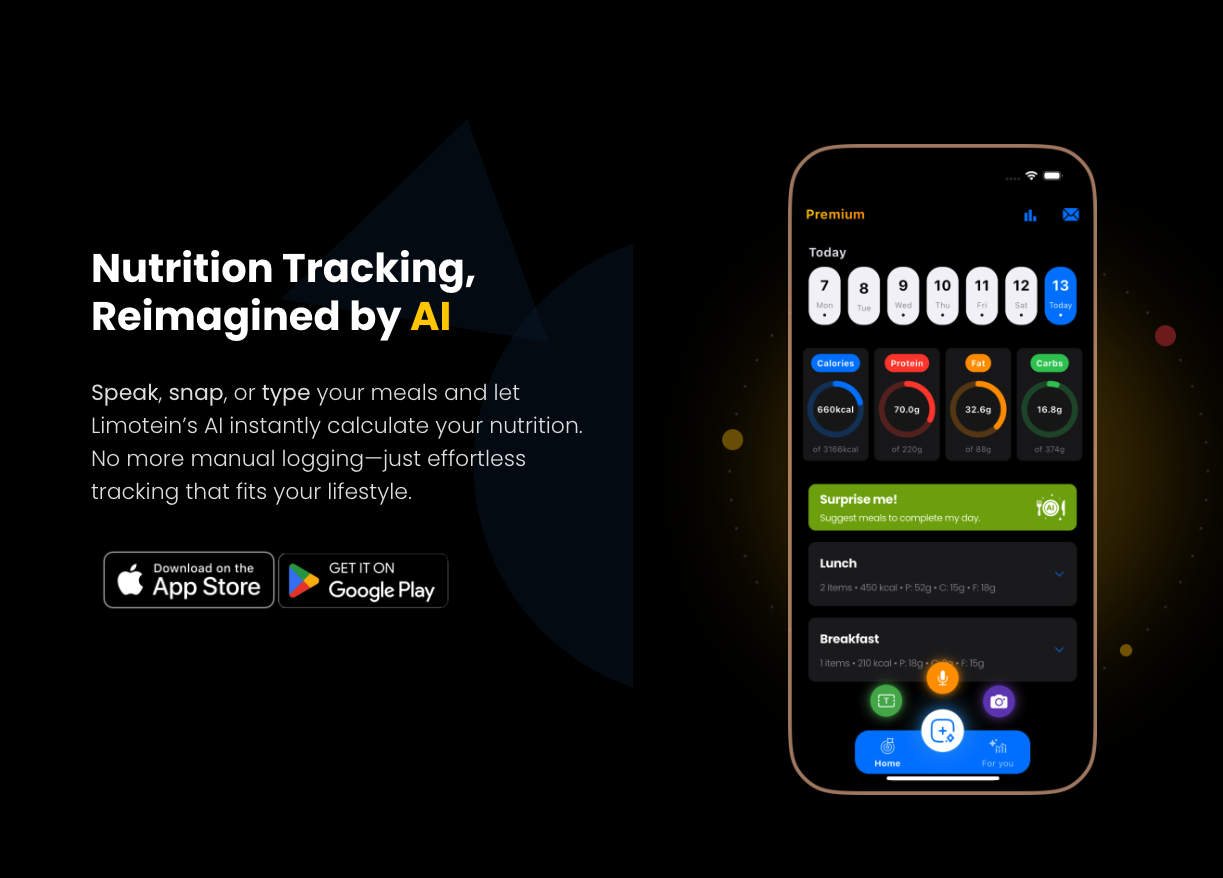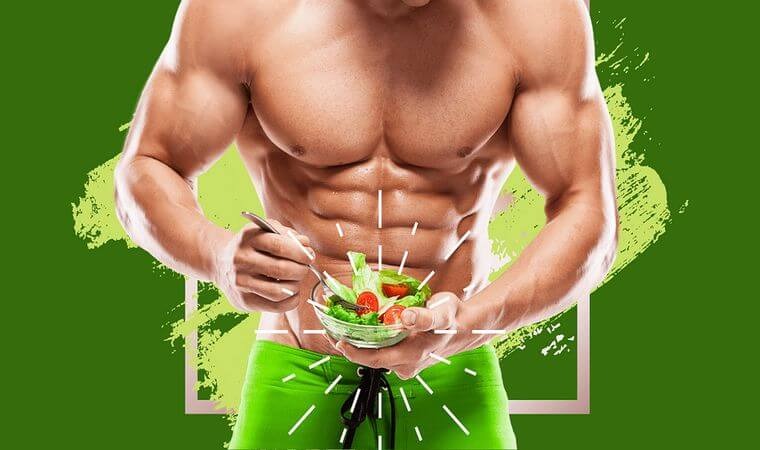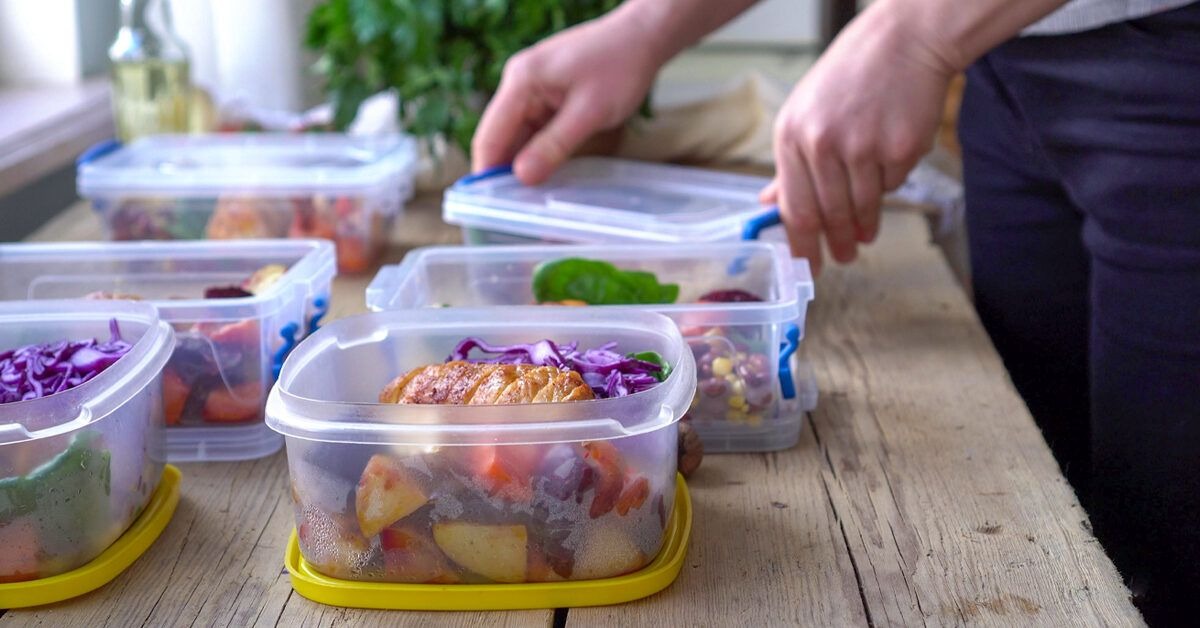Plant-based and vegan diets are taking the world by storm. Millions of people are reducing their animal product consumption for a variety of health, environmental, and ethical reasons. But amidst all the excitement, there’s one big, persistent question that every plant-based eater has faced:
But where do you get your protein?
This concern, while understandable, is rooted in outdated information and common myths. The truth is, a well-planned plant-based diet can not only meet all your protein needs but can also be incredibly rich in other vital nutrients. This article is your definitive guide to putting those worries to rest and building a powerful, protein-packed plant-based diet.
Why Is Protein So Important? (It’s About More Than Muscle)
First, let’s understand why protein is so critical. Its role goes far beyond building muscle for athletes:
- Satiety: Protein keeps you feeling fuller for longer compared to carbs and fats, helping to manage appetite.
- Hormone & Enzyme Function: Nearly every chemical reaction in your body depends on proteins.
- Healthy Hair, Skin, and Nails: These are all made from protein.
- Immune System: The antibodies that fight off infection are proteins.
Debunking the Myth: Are Plant Proteins “Incomplete”?
One of the biggest myths is that plant proteins are inferior because they are “incomplete.” This idea comes from the fact that some plant sources may be lower in one or two of the nine essential amino acids.
But what does modern science say? This theory is outdated. Your body maintains a clever “amino acid pool.” As long as you eat a variety of plant-based foods throughout the day, your body will take what it needs from this pool to build complete proteins. You do not need to stress about combining specific foods (like rice and beans) in the same meal.
The key to success is one word: Variety.
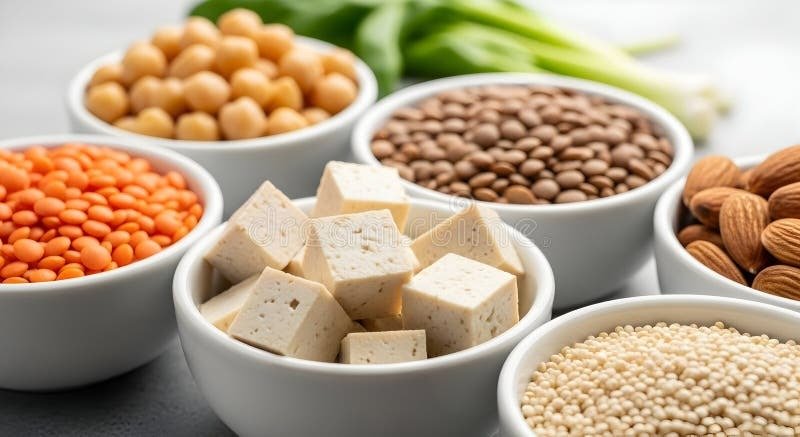
 Also Read:
Gut Microbiome Protocols: Tracking Prebiotics and Probiot...
Also Read:
Gut Microbiome Protocols: Tracking Prebiotics and Probiot...
The Powerhouses of Plant-Based Protein (Your Go-To List)
Here is a list of the best plant-based protein sources to include in your diet:
- Legumes (The Foundations):
- Lentils: About 18 grams of protein per cooked cup.
- Chickpeas: About 15 grams of protein per cooked cup.
- Beans (Black, Kidney, etc.): About 15 grams of protein per cooked cup.
- Edamame, Tofu & Tempeh (Soy Powerhouses): The champions of plant protein! Tofu can pack up to 20 grams of protein per cup.
- Nuts & Seeds (The Nutrient Bombs):
- Hemp and Chia Seeds: Excellent sources of both protein and omega-3s.
- Peanut Butter & Almonds: An easy way to add a protein boost to meals and snacks.
- Pumpkin Seeds: Loaded with protein and valuable minerals.
- Whole Grains & Meat Alternatives:
- Quinoa: One of the few plants considered a “complete protein” on its own (about 8 grams per cup).
- Seitan: Made from wheat gluten, this is a protein bomb with about 25 grams per 100g serving.
- Oats: A great breakfast staple with about 6 grams of protein per serving.
How to Ensure You’re Getting Enough Protein
Knowing this list is great, but here’s the main challenge: how can you be sure your total daily protein intake is meeting your personal goal (which varies based on your weight and activity level)? Guesswork can lead to falling short, leaving you feeling tired and hungry.
This is where smart tracking turns worry into confidence.
Limotein is the ideal tool for the modern plant-based eater:
- Focus on Protein: You can set a specific daily protein goal. Instead of just focusing on calories, Limotein shows you exactly how close you are to hitting your protein target throughout the day.
- Log Complex Meals Easily: Plant-based meals often have many ingredients. With voice logging, you can simply say, “Lunch was a quinoa salad with chickpeas, spinach, and a scoop of hummus,” and Limotein does the rest.
- Discover New Sources: By logging your food, you might discover that ingredients you didn’t pay much attention to (like pumpkin seeds) are excellent protein sources, helping you diversify your diet.
Conclusion: Go Plant-Based with Complete Confidence
A high-protein, plant-based diet is not only possible but surprisingly easy, as long as you stick to two principles: variety in your diet and awareness of your intake.
The “protein problem” is an old myth. With the right knowledge and the right tools, you can confidently enjoy all the amazing benefits of a plant-based lifestyle.
Ready to start or optimize your plant-based journey? Stop worrying about protein and start knowing. Use Limotein’s free trial to track your intake, discover new recipes, and build a thriving plant-based lifestyle with confidence.


